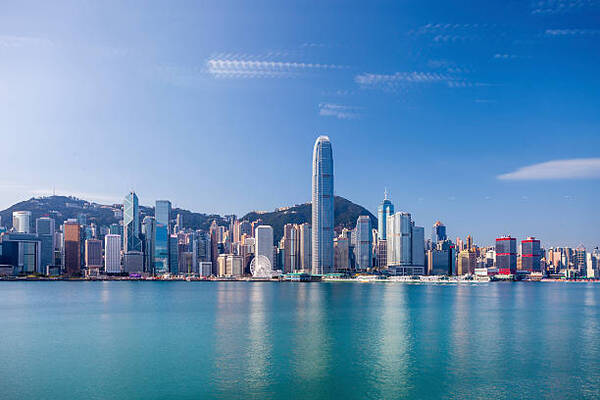Saturday, June 7, 2025

Hong Kong is aggressively revamping its tourism strategy, focusing on attracting high-spending travelers with exclusive events and luxury experiences to regain its elite status.
Once known for its political protests, pandemic restrictions, and heightened security, the city is now aiming to expand its appeal to a more diverse range of travelers, seeking to attract visitors beyond those from mainland China who are typically budget-conscious.
Recently, a pair of tourists from southwestern China visited Hong Kong during a brief holiday, determined to make the most of their time in under 12 hours. With only small bags in tow, they sampled beef noodles in the Central district, snapped photos at a waterfront promenade during sunset, and captured the city’s dazzling skyline after dark. They bought a few souvenirs—medicinal oils and retro comics—and spent less than $150 before heading back to mainland China for the night.
These visitors are part of a growing trend of “special forces tourists” from mainland China. This group of travelers is characterized by their desire to experience the city as quickly and economically as possible.
Mainland Chinese tourists have historically represented more than three-quarters of Hong Kong’s total visitors. However, while they once splurged on luxury items like designer handbags and watches, their spending has declined, creating a challenge for the city’s efforts to revitalize its tourism sector. This downturn comes after years of political unrest, pandemic restrictions, and growing international concerns about its increasing control over freedoms.
In response, Hong Kong is shifting its focus from being primarily a shopping destination to positioning itself as the region’s hub for events, with a particular emphasis on concerts and trade shows. The aim is to draw in repeat visitors and encourage higher spending.
To support this strategy, the city recently unveiled a $4 billion sports park built on the site of the former Kai Tak airport. The centerpiece of the park is a striking purple stadium with air-conditioning under each of its 50,000 seats. The venue was nearly full during the annual Rugby Sevens tournament in late March, drawing international visitors to experience the state-of-the-art facilities and vibrant atmosphere.
In the following month, the stadium’s retractable roof was illuminated with captivating visual effects during four sold-out Coldplay concerts. The venue also hosted performances by local and regional artists, further cementing its role as a versatile event space.
Many of these events are supported by the Mega Arts and Cultural Events Fund, a government initiative launched in 2023. This fund offers up to $1.9 million in subsidies for qualifying events. The government is also backing several major soccer matches, including a recent exhibition featuring Manchester United.
Tourism spending in Hong Kong has shown gradual improvement since the pandemic, accounting for 2.6 percent of the city’s economic output in 2023, according to the latest data. However, this still falls short of the government’s target of 5 percent, which would surpass pre-pandemic levels.
Industry experts suggest that Hong Kong’s key challenge is differentiating itself from other prominent Asian cities like Singapore and Bangkok, which have long attracted top celebrities, business conferences, and sports events by offering various incentives.
Singapore, for example, has made substantial investments in hosting high-profile events such as its annual Formula One race and exclusive contracts with global stars like Taylor Swift and Lady Gaga.
Hong Kong’s international image has taken a hit in recent years. The United States and other Western countries have issued travel warnings, particularly after the introduction of a national security law by Beijing in 2020, which broadly criminalized political opposition. The ongoing trade conflict between the U.S. and China has also fueled uncertainty, further impacting the city’s global standing.
Recent government data shows a significant drop in visitors to Hong Kong from nearly all regions of the world in 2024 compared to 2018. Many businesspeople from Europe and the United States have expressed negative views about the city, citing concerns over its political climate.
To counter this, Hong Kong is now prioritizing high-spending visitors from Southeast Asia and the Middle East. While the city was once seen as a Westernized outpost at the edge of China, it is now embracing its closer connections with nearby Chinese cities.
The city’s efforts to boost tourism are also critical as more Hong Kong residents are choosing to travel to the mainland for weekends and holidays in search of cheaper entertainment. During China’s five-day Golden Week holiday in early March, Hong Kong saw 1.1 million tourists, but over 1.68 million residents left the city, highlighting the importance of attracting more visitors to the region.





















